After more than three years of war, thousands of Ukrainians live with the physical and emotional trauma of severe facial injuries. Doctors now use cutting-edge methods, including 3D printing, to rebuild faces.
Recovery is cruel, with wounds that impair eating, speaking, and even the sense of self. Patients depend not only on surgeons to heal their broken features but also on family and community to help them move forward. The face is a window to identity and emotion; when it is disfigured, one is not merely wounded but unmoored from their own self.
Since Russia’s invasion of Ukraine in 2022, grievous facial injuries have become a brutal testament to modern weaponry and the vulnerability of flesh. As one patient put it: “A soldier loses a leg and society calls him a hero. But lose your face, and you become a ghost.”
Surgeons have made significant strides, particularly through 3D printing. By creating patient-specific implants and surgical guides, the technology enables precise reconstruction of shattered jaws, cheekbones, and eye sockets—restoring not just function, but the very contours of identity.
This advance builds on a century of innovation, from Harold Gillies’s pioneering surgeries for men maimed in the trenches of the Somme in World War I, to today’s digital modeling that repairs bodies mangled in the battlefields of Bakhmut. The aim has always been the same: to restore function, and with it, hope.
Yet for many Ukrainians, progress comes after painful detours—botched operations, repeated interventions, improvisations born of war’s urgency. Like much of Ukraine’s broader struggle, its medical fight is marked by resilience, ingenuity, and relentless experimentation.
Over two years, I visited men and women whose lives have been shattered, and met the doctors and volunteers who work tirelessly to help them reclaim not only their faces but also their place in the world.
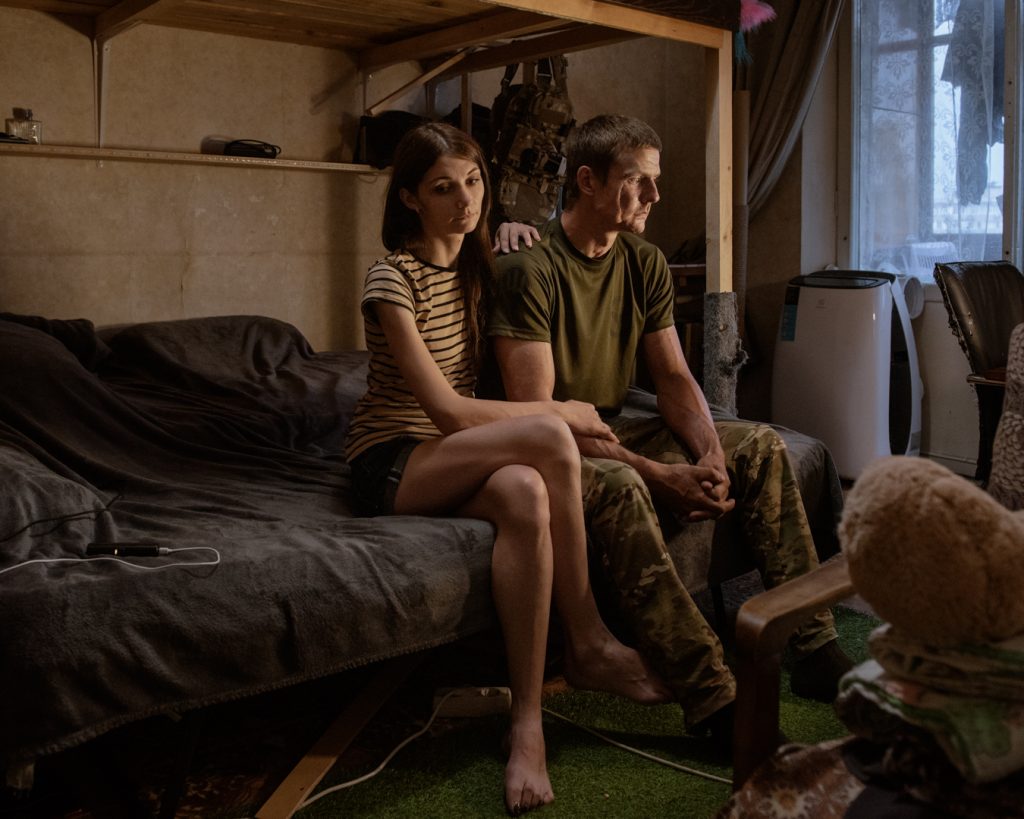
Kyiv, July 02, 2024. “It’s the same fight, for yourself, for your life. Just like in the trenches, the same goes for the hospital bed after the injury,” said Volodymyr Melnyk, sitting at home with his wife Yena, who had found and identified him in the hospital when he was barely recognisable.
Originally from Cherkasy, Melnyk now lives in Kyiv. An experienced sniper with nine years in the special operations forces, he was severely injured in August 2023 during a counter-offensive in Zaporizhzhia oblast. A missile strike hit his position, leaving him with devastating injuries, “the worst I’ve had in the last nine years,” he said.
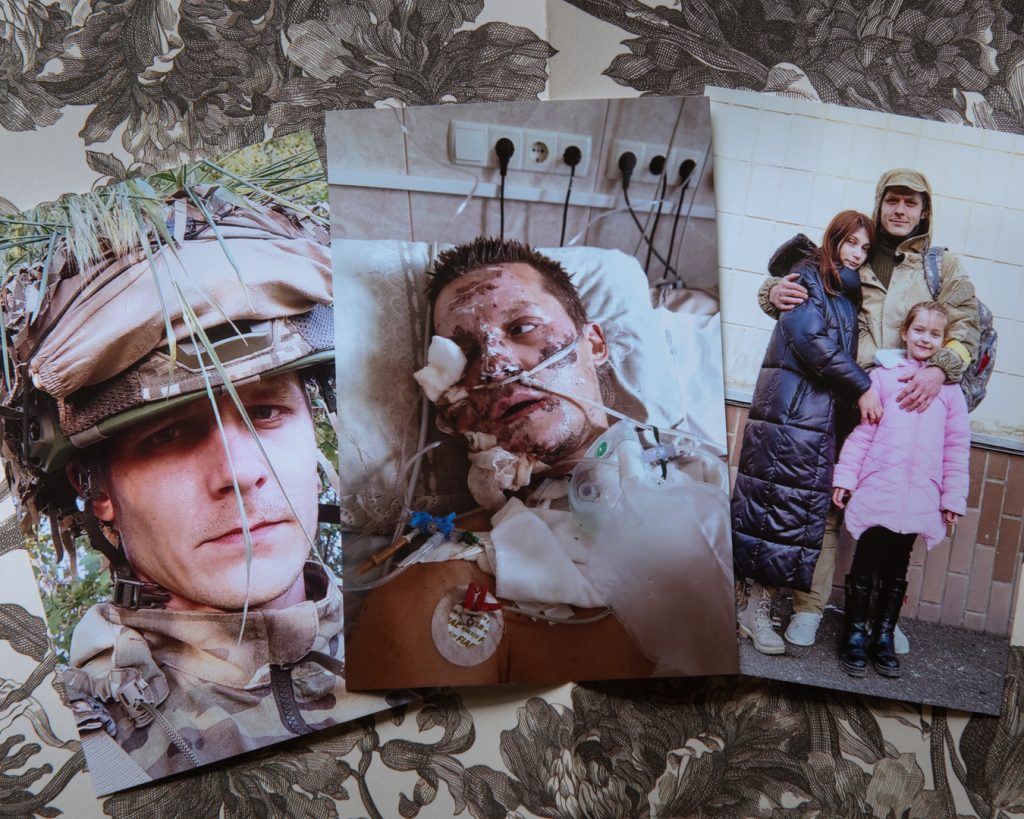
Left and right: Volodymyr before his injury in August 2023. Center: in the hospital, waking up from a six-day coma after the explosion, before being transferred to Kyiv. The evacuation team could not reach him at first. Russian artillery and drones made movement impossible. For nearly 23 hours, he fought on through the pain. Once he reached safety and the adrenaline was gone, the cruel reality of his injuries set in.
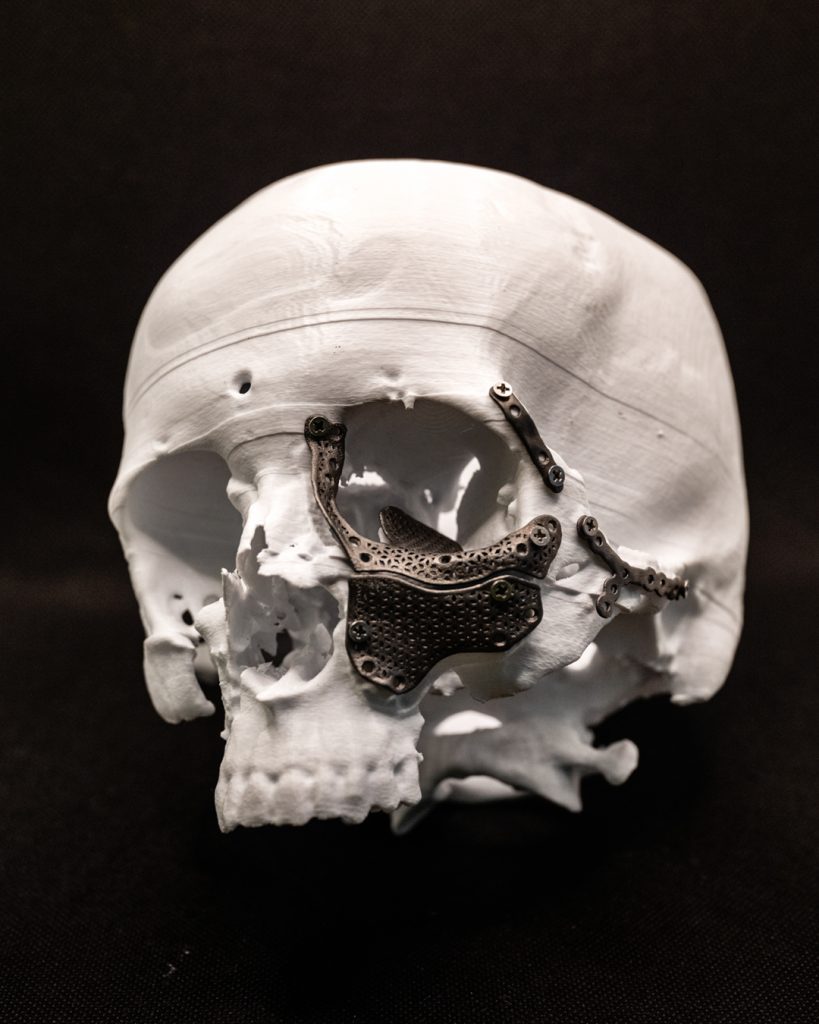
Kyiv, September 07, 2023. A 3D-printed model of a patient’s skull with custom titanium implants around the eye and temple. Surgeons scan the damaged skull, create a digital model, and print titanium plates layer by layer , “like rebuilding a shattered vase,” said Dr. Andrii Kopchak, the head of the department of maxillofacial surgery at Bogomolets National Medical University in Kyiv.
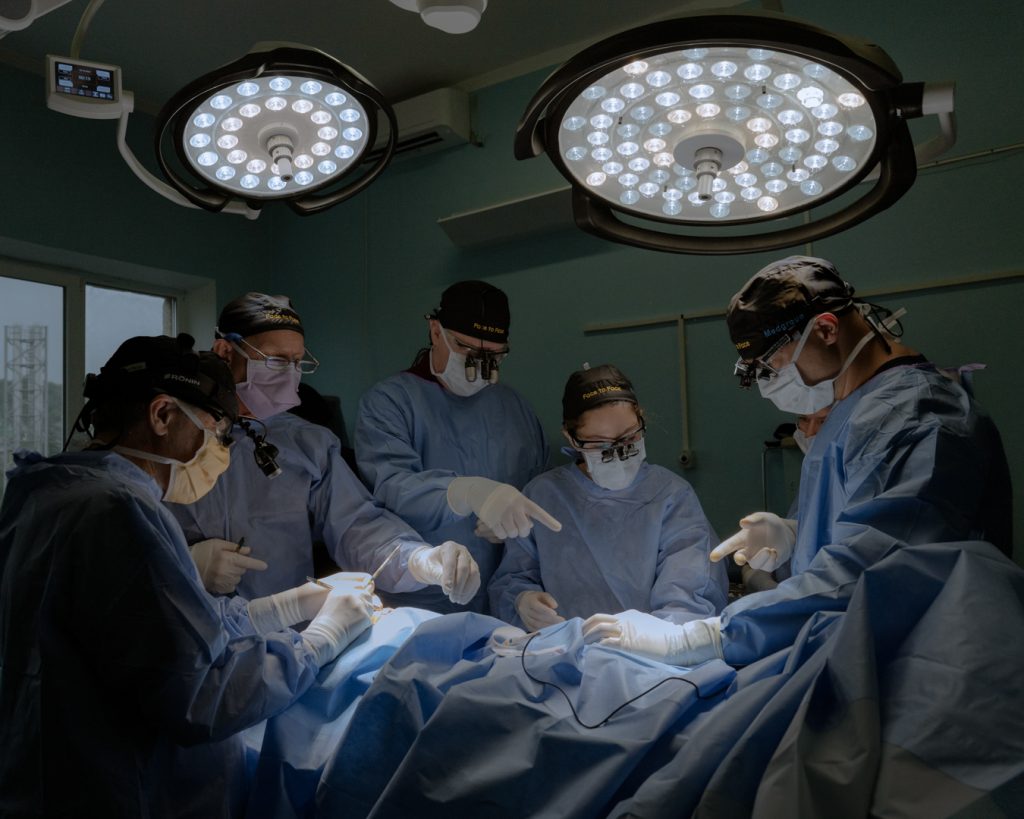
Lviv, Ukraine, October 2, 2024. American surgeons, together with U.S.-based Ukrainian doctors and Ukrainian colleagues, perform a complex nasal reconstruction at a military hospital as part of the humanitarian “Face to Face” mission, which provides free reconstructive surgeries for soldiers and civilians with severe facial injuries.
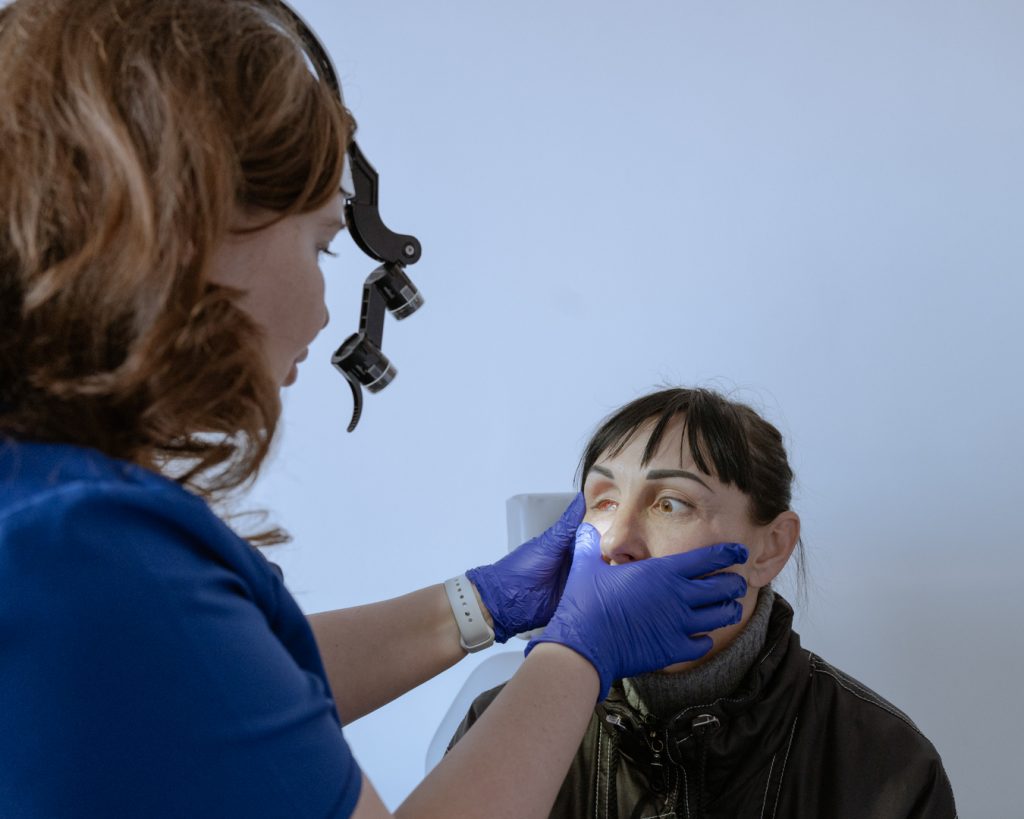
Ivano-Frankivsk Hospital, November 25, 2024. Nataliia Komashko, organizer of the international medical mission “Face the Future,” examines Nelya Leonidova, who survived a 2014 shelling in Zuhres that left her severely wounded and initially mistaken for dead. After years of surgeries, she will now finally receive an ocular prosthesis through the mission, a crucial step toward regaining a more normal appearance.
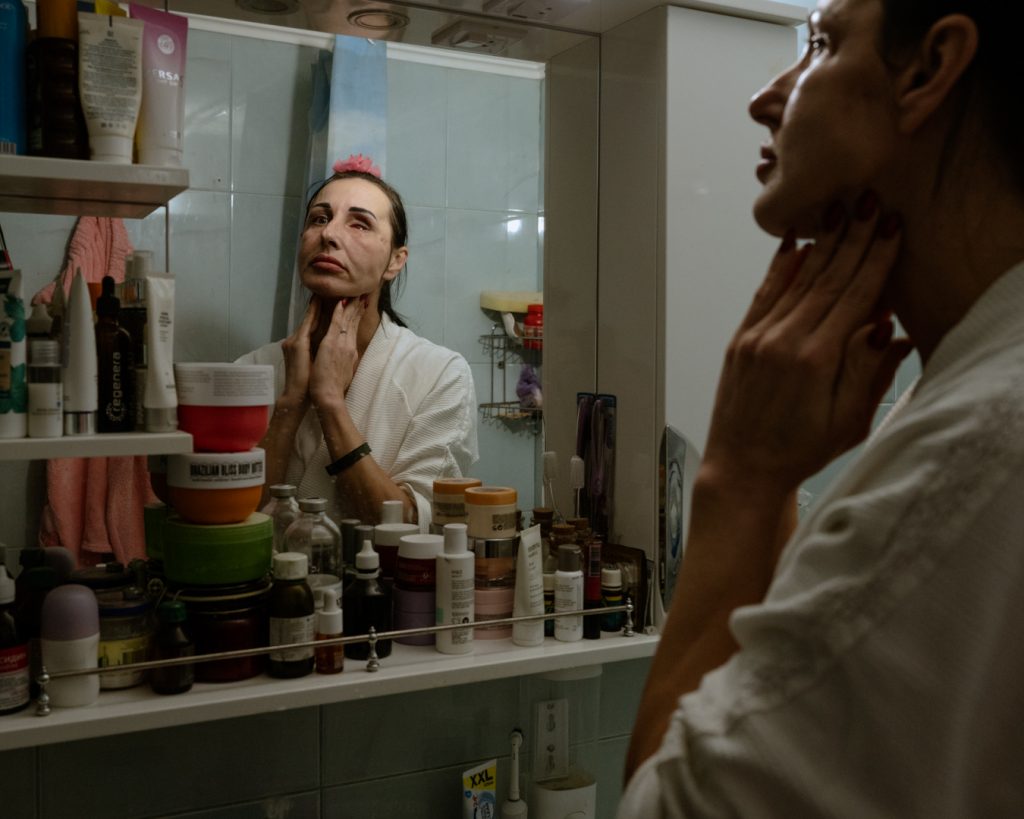
Kolomyia,Ivano-Frankivsk Oblast, November 25, 2024. In her new home, Nelya Leonidova, now 45, and displaced in western Ukraine, studies crisis psychology while dreaming of opening a rehabilitation center for war survivors. After a decade-long journey she calls “hell,” she now enjoys simple rituals like applying creams and softly telling herself, “I am beautiful, I am strong”, a quiet act of resilience after years of rebuilding her face and her life.
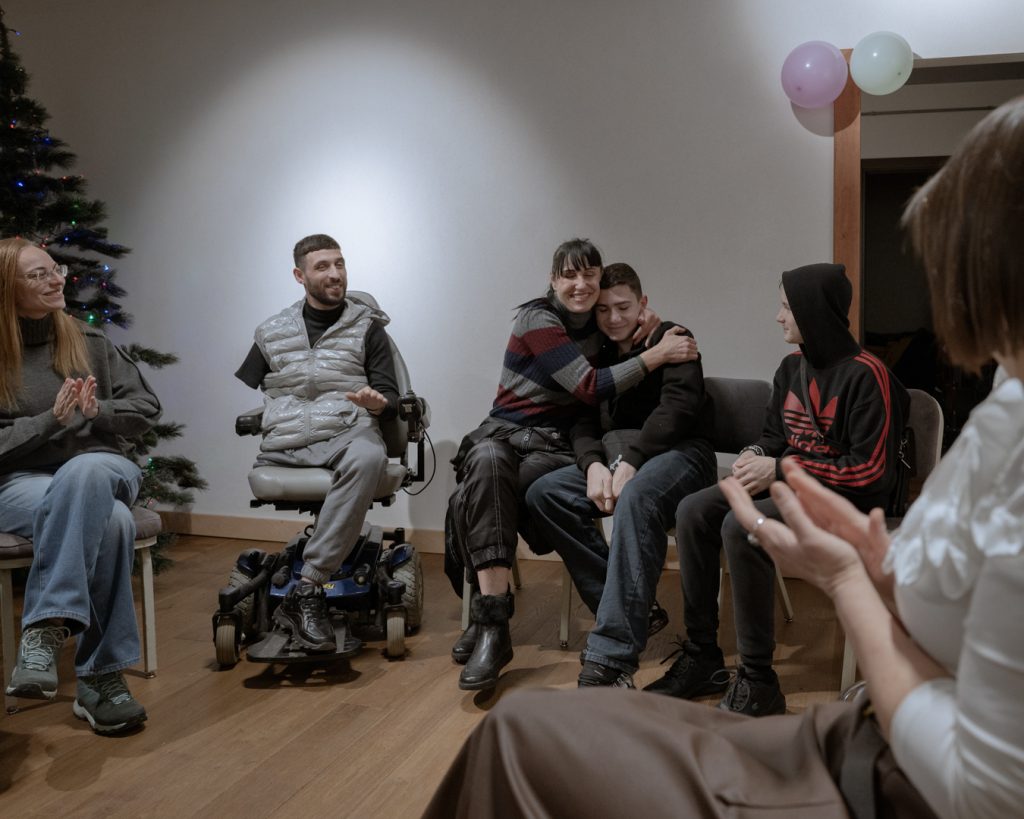
Ivano-Frankivsk Hospital, November 24, 2024. “I want to live,” said Nelya Leonidova. “For my children, for the life that was stolen but not lost. I want to find peace in the pieces left to me.” At a support group for families affected by the war, Nelya embraces her adopted son, a quiet moment of tenderness after years of struggle. Together with her son and adopted son, she is attending an event organized by Dream Action at the Viiyskove Kolo (Military Circle), a space created to offer strength, inspiration, and psychological support. While primarily focused on veterans, it also welcomes civilians like Nelya, as well as defenders and civilian victims of the war currently undergoing treatment at the regional hospital in Ivano-Frankivsk, where Nelya herself received surgery.
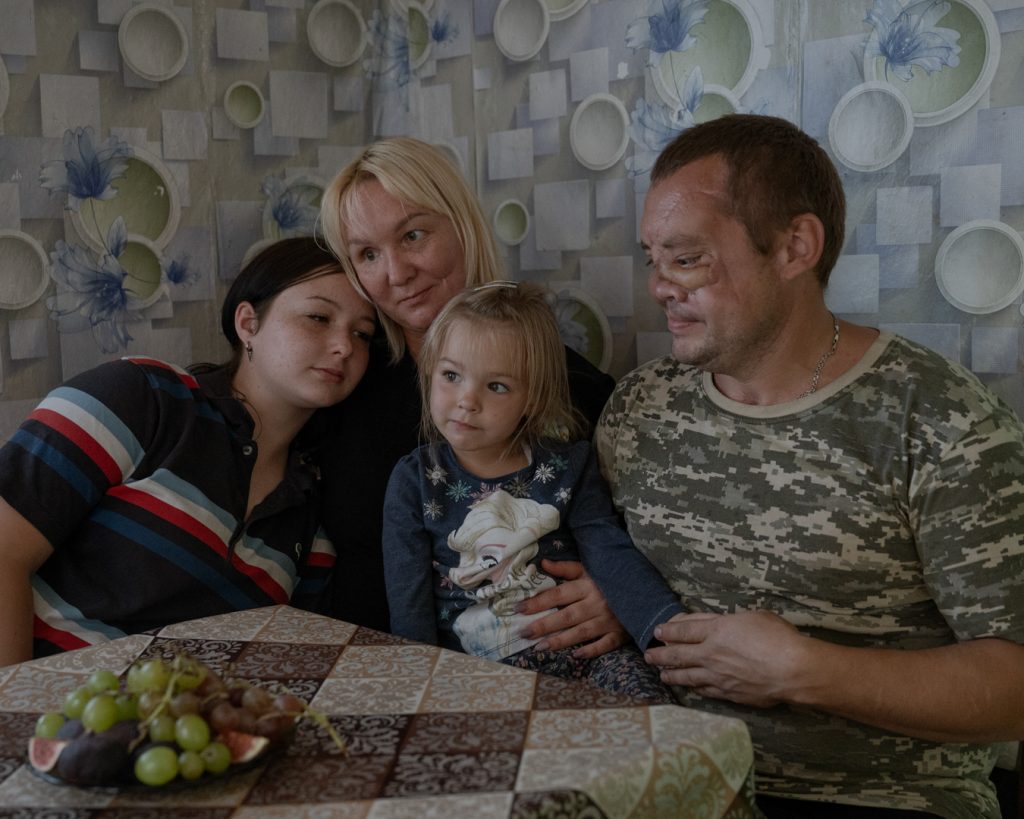
Novosofiivka, October 5, 2024. Artur Tkachenko, 37, sits in the kitchen with his wife Julia and their children, just a few streets from where a Russian missile killed his parents and left him severely injured. Once a factory worker who volunteered to fight, Artur survived months of combat only to return home to new devastation.
The blast that shattered his face also injured Julia and hurled their 20-month-old daughter more than 20 yards. Artur survived, but his face was left all but unrecognizable.
“When I first saw my reflection, it was very different,” he said. “I couldn’t feel parts of it. I couldn’t even talk.”
After long months in several hospitals, he is back with his family. He is still recovering from complex reconstructive surgeries, while they dream of escaping.
“It’s often too loud here,” Julia said. “We can hear the explosions from the front line. But where would we go?
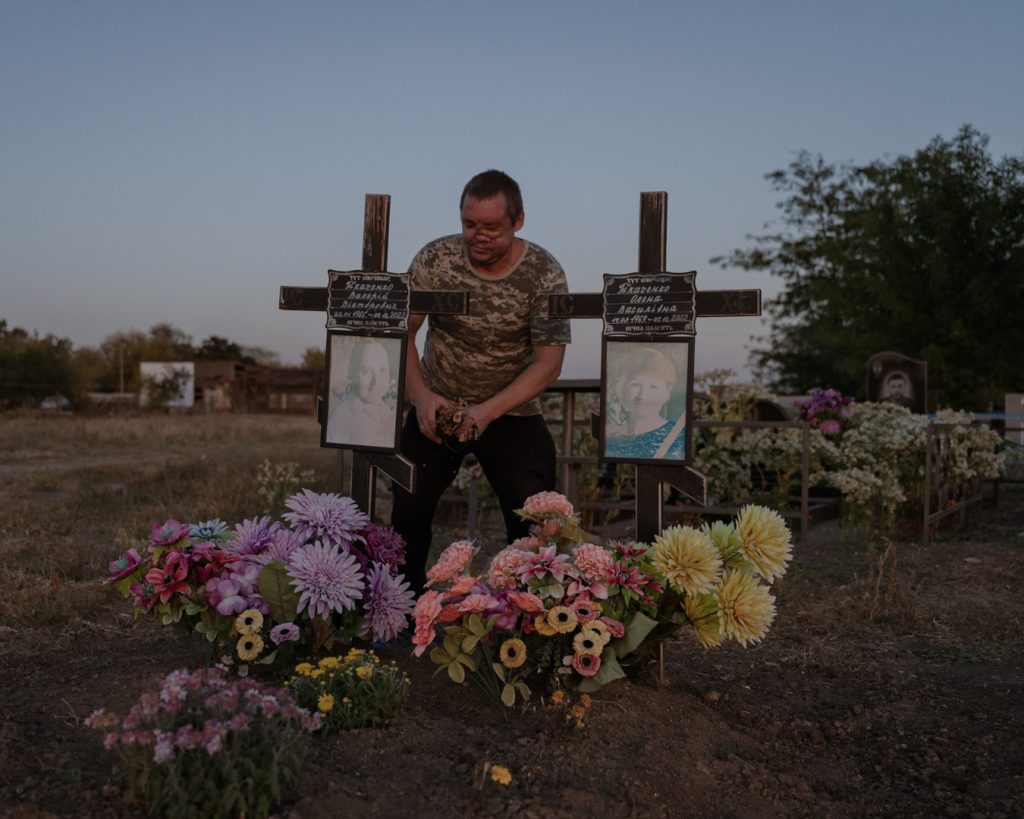
Novosofiivka, Zaporizhzhya region, October 05, 2024. At the cemetery where his parents are buried, Artur Tkachenko lays flowers on their graves. On December 5, 2022, a missile struck in front of their house, killing both of them and leaving Artur and his wife Julia, with severe facial injuries.
Since then, Artur has spent much of his life in hospitals. Initially reconstructed with 3D-printed titanium plates, his face had to be rebuilt again after repeated infections forced doctors to remove the implants and replace them with bone grafts held by smaller titanium pieces. His case has become a lesson for surgeons on both the promise and the limits of 3D-printing technology in treating very severe facial trauma.
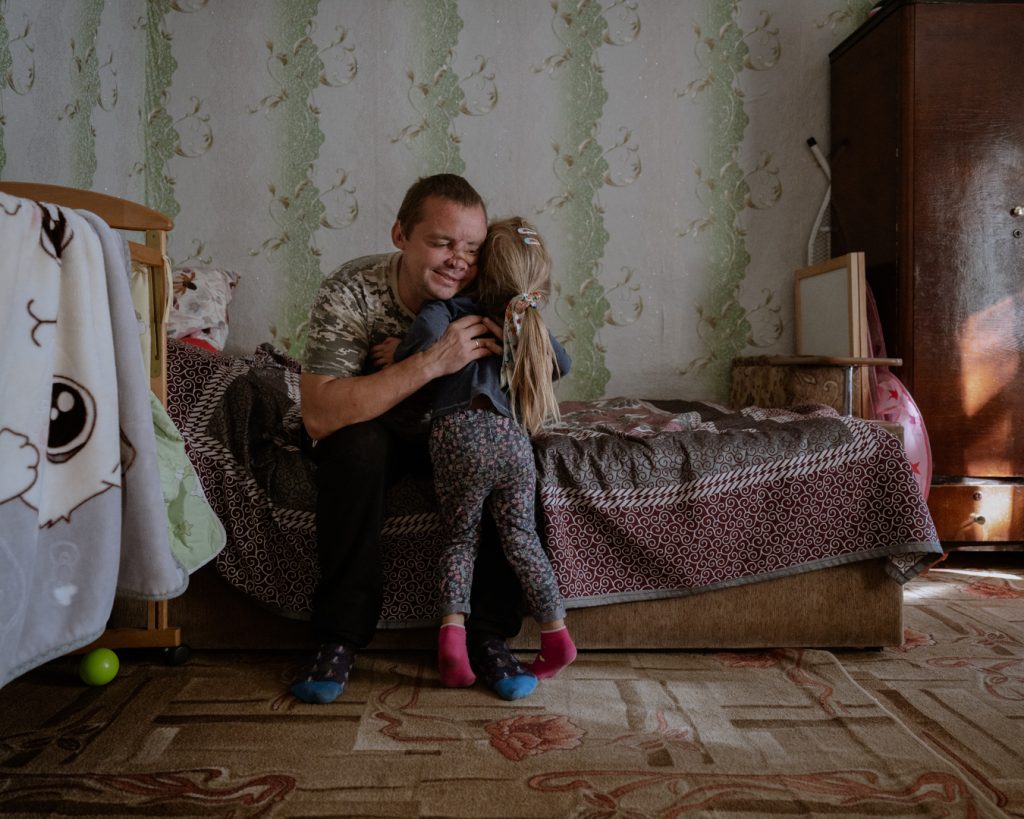
Novosofiivka,October 04, 2024. Now unable to work, Artur Tkachenko spends his days caring for his children and trying to hold everything together. Surviving the missile strike that killed his parents has left him deeply grateful, overflowing with love for life and for his loved ones. In World War I, soldiers who survived facial trauma were often shunned by society, a stigma that doctors in Ukraine said exists today. But for Artur surrounded by the unwavering support of his family, he has grown almost indifferent to his altered appearance, finding strength instead in the love that holds them together.
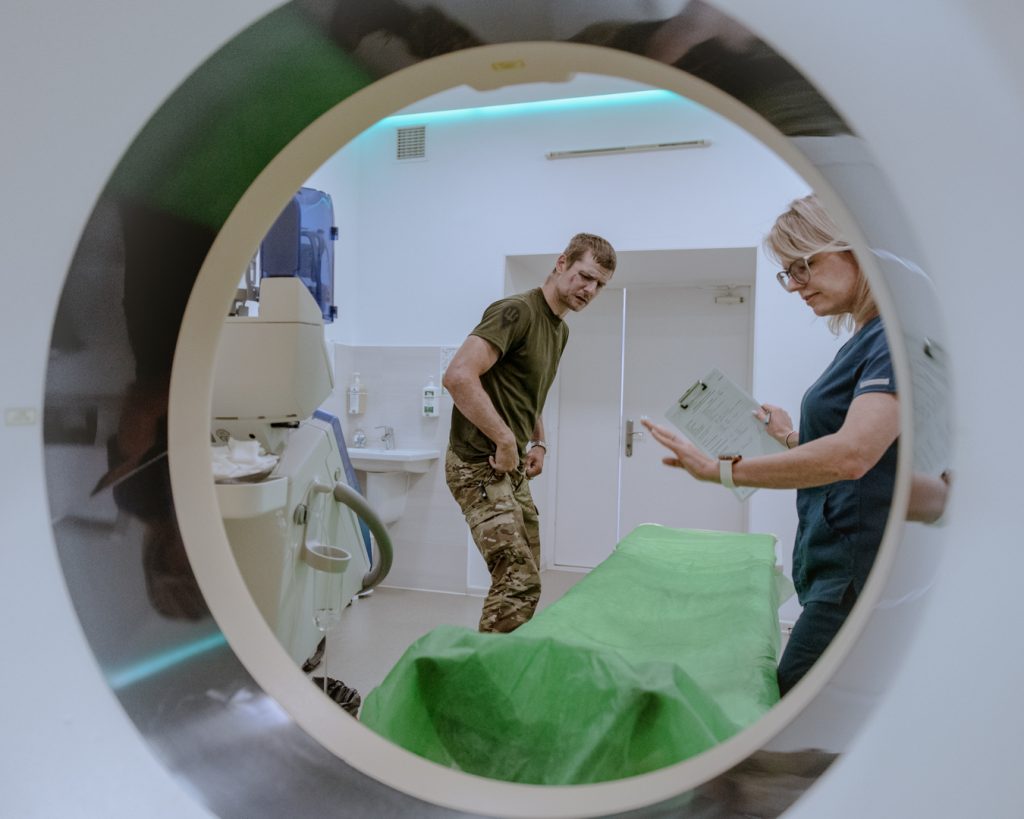
Kyiv, July 01, 2024. Volodymyr Melnyk undergoes an MRI scan of his skull at a clinic in Kyiv, as doctors assess his progress after more than 50 surgeries in the past year. Plates were misplaced, abscesses formed, and shrapnel was left inside before volunteers from the Doctors for Heroes project intervened, transferring him to a new hospital and a new reconstructive program. “The main thing was to be able to chew and eat, because that’s energy for a person, especially a soldier,” he said.
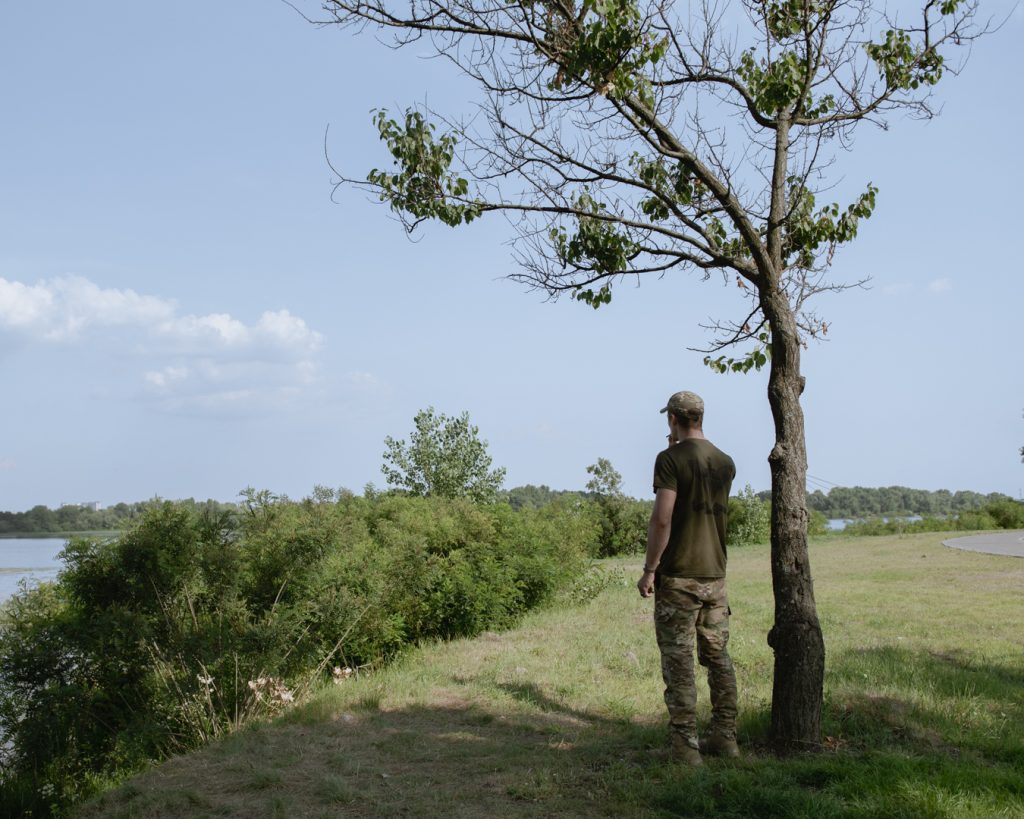
Kyiv, June 29, 2024. Ukrainian and foreign surgeons have made significant strides in treating the wounded, and Melnyk’s case shows just how far this care has come. Through a highly delicate surgery to replace his damaged lens, doctors managed to restore his sight, making possible his one and only desire. Throughout his long recovery, he was driven by a single goal: to return to the front.
For Volodymyr, this was essential. Before even seeking social acceptance of his changed face, what mattered most, physically and mentally, was reclaiming his status as a soldier, a core part of his identity. Doctors noted that the psychological scars can be even harder to heal.